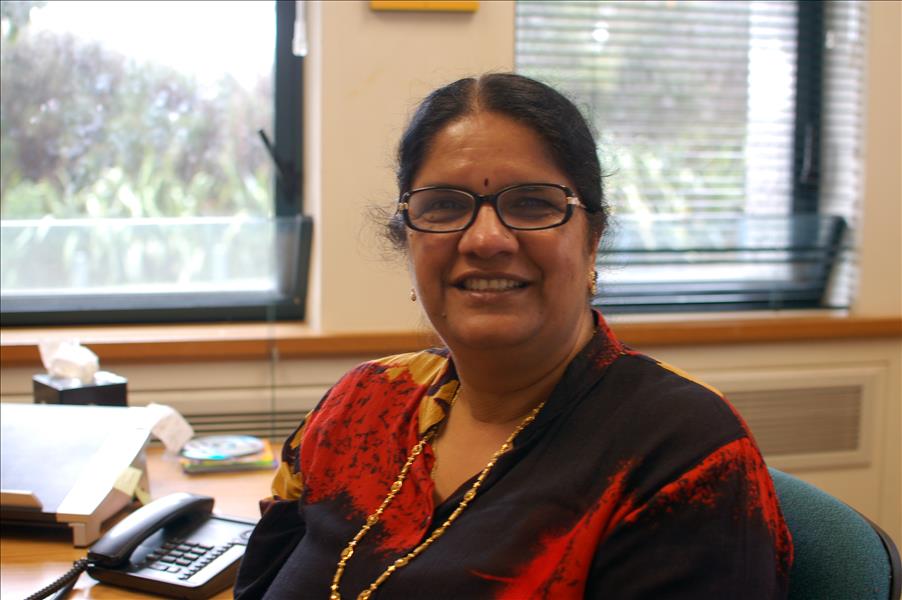 In my previous article titled, ‘International students challenge local job seekers’ (Indian Newslink, August 15, 2014), I wrote about the need for foreign students wishing to study in New Zealand to undertake due diligence.
In my previous article titled, ‘International students challenge local job seekers’ (Indian Newslink, August 15, 2014), I wrote about the need for foreign students wishing to study in New Zealand to undertake due diligence.
This article focuses on the growing tension between foreign students and prospective employees wishing to migrate to New Zealand.
Let me start with the opportunities foreign students, in particular Indian students present to the Indian diaspora and to our economy.
There is no doubt that these students contribute to our community by injecting fresh spirit, new ideas, a much-needed young Indian outlook and up to date cultural currency.
Some New Zealand Indian families have not travelled back to their motherland for a number of years and hence it is easy to lose track of Indian developments – socially, culturally, linguistically and in arts.
However this can only happen if as a community we are open to such opportunities and the students are willing to share.
Part-time jobs
New Zealand and the Indian Diaspora cannot ignore the foreign students’ economic contribution through their fees. This however can be interpreted in more than one way.
Some people firmly believe that on the one hand they make a huge financial contribution, but on the other take away part-time jobs from locals including New Zealand born or raised Indian students.
Some question whether the foreign students really take away local jobs or do they take up the jobs that our local students did not want to, in the first place If true, the foreign student is simply filling in the gap in the part-time employment market.
My anecdotal evidence suggests a bit of both. Yes, they do fill the gap and take on jobs that our local students sometimes shun.
Unacceptable conditions
The local students to whom I have spoken have a slightly different perspective on this issue. In their view, the foreign Indian subcontinent students are prepared to accept poor working conditions, well below minimum hourly rate for cash payment and will work longer hours that are not necessarily good for work and life balance, let alone beyond the legal limits of their visa.
These opposing viewpoints create tension within various groups, not to mention the foreign students being exploited by the local businesses. What is really sad is that in most cases they are exploited by their own ethnic group employers and in some cases they become willing victims in their ignorance of our Employment Law and the need to earn a sustainable income.
Unethical trend
I have noticed this illegal and unethical trend increasing over the past ten years.
I am also aware of a number of local and India based agents taking advantage of the Indian students’ desperate need to come to New Zealand. Therefore, they think of a strategy to gain Permanent Residency (PR) status, which in turn opens the door to apply for citizenship.
Having worked in the education sector and in the local community for over three decades, I have watched things change and therefore I am under no illusion that their bid to gain New Zealand citizenship is not necessarily to enhance or contribute to the economy, but as a gateway to other western countries where our passport serves as an easy entry point.
What is lacking is some research into what proportion of Indian students stay in New Zealand after gaining PR status and citizenship as opposed to those who leave the country within three to five years of gaining residence and/or citizenship.
I bring these issues up because with the apparent increase in the number of such cases, tension within our communities is evolving.
As a positive, influencing community in the multi-ethnic face of New Zealand, we have the responsibility to identify such trends and have a strategy to counteract such tensions.
Besides, this identified growth of tension between foreign students, local Indians and the public, there is also a growing tension between potential Indian migrants seeking employment opportunities and the ‘greased path’ foreign students can travel to achieve PR status.
Only last month, I was made aware of a few cases in which people in India have been waiting for a long time to gain residency following the usual Government channel as opposed to foreign students completing their qualification then applying for a work visa and ultimately on that basis gaining residency.
On the surface there is nothing untoward this foreign student preference but on closer study, you will find that these students work as shelf-stackers, restaurant waiters, dairy, supermarket or petrol station cashiers and continue as full-time employees after their obtaining their degree and acquire PR.
This is viewed by potential Indian immigrants who have to wait a long time for a work permit as ‘a greased path’ because “if you have money, go and get a qualification in New Zealand, you can jump the queue and get residency. It is all a money game, not suitability for residency.”
How far this statement is accurate or widespread remains to be explored in depth. It is another evolving issue that the Indian Diaspora should be aware of before the submerged grievances fester.
Dr Pushpa Wood is an Education and Research Consultant based in Wellington and President of the Wellington Chapter of the Global Organisation of People of Indian Origin (GOPIO). The opinions expressed in the above article are her own and do not reflect those of Indian Newslink. Dr Wood hopes that her article (to be followed by a sequel in our next issue) will stimulate a healthy debate rather than an angry reaction, in order that young people from India do not fall a prey to illusions and unscrupulous agents. Please read our Editorial, ‘International Students: Lessons of the Past’ under Viewlink. We welcome your comments to editor@indiannewslink.co.nz






